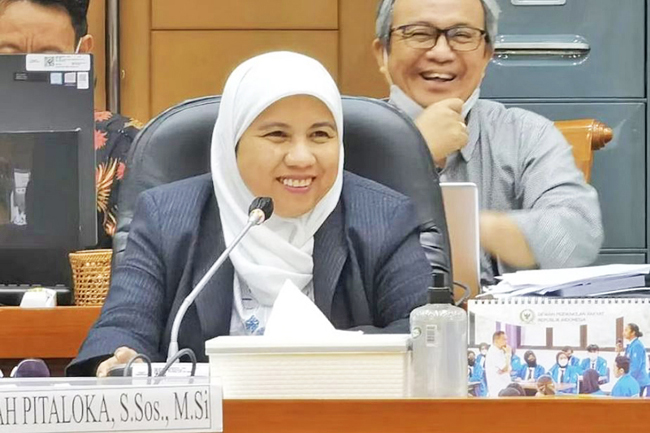ANN/THE STRAIT TIMES – Indonesia’s two-decade-old campaign for affirmative gender action has been hampered by the failure of almost every political party to reserve for female candidates at least 30 per cent of the contested seats in the 2024 elections.
The 2003 Legislative Elections Law stipulates that political parties must have at minimum 30 per cent female candidates in the list of nominees.
Out of 18 parties that submitted their lists of candidates for the House of Representatives to the General Elections Commission (KPU), only the United Indonesia Party (Perindo) met the 30 per cent quota for its female legislative nominees in 84 electoral districts nationwide, according to the Civil Society Coalition on Women Representation.
“This prevents the women from exercising their constitutional right to be voted for,” a member of the coalition Hadar Nafis Gumay told The Straits Times.
Hadar, who is also Executive Director of the Network for Democracy and Electoral Integrity, said that was due to a new rule by the Election Commission passed in April allowing political parties to field fewer than the stipulated 30 per cent female legislative candidates in a given electoral district.

Under this rule, if an electoral district has four candidates, the minimum number of female candidates fielded can be rounded down to one, lowering representation for women to 25 per cent. This arrangement also affects electoral districts with seven, eight and 11 nominees.
Hadar estimated that with each party removing one slot for women candidates in each electoral district, around 290 slots for women were lost.
Hadar, a former KPU commissioner, noted that the new rule breaches the 2008 Election Law and erodes affirmative action to enhance women’s participation in politics.
“We believe that an inclusive and just political process will produce policies that promote justice for all. The decreasing number of women taking part in the election will affect policymaking,” he said.
Around 240.8 million people in Indonesia, the world’s third-largest democracy, will go to the polls on February 14, 2024, to vote for President, MPs, the Regional Legislative Council and the Regional Representative Council.
The country first introduced the 30 per cent quota in the 2004 election, and improved the arrangement by requiring that of every three legislative candidates, one should be female in the 2009 election.
There were only 61 female MPs out of a total of 550 voted into power in 2004 – accounting for 11 per cent of all MPs.
But, the figure rose to 120 women – or 20.9 per cent of 575 MPs voted into office in 2019.
This allowed Indonesia to be ranked 105th out of 193 countries in terms of women being represented in Parliament by the Inter-Parliamentary Union, the global organisation of national Parliaments, in 2022.
Greater participation of women in politics is considered vital to addressing gender-related issues, especially in a country like Indonesia.






